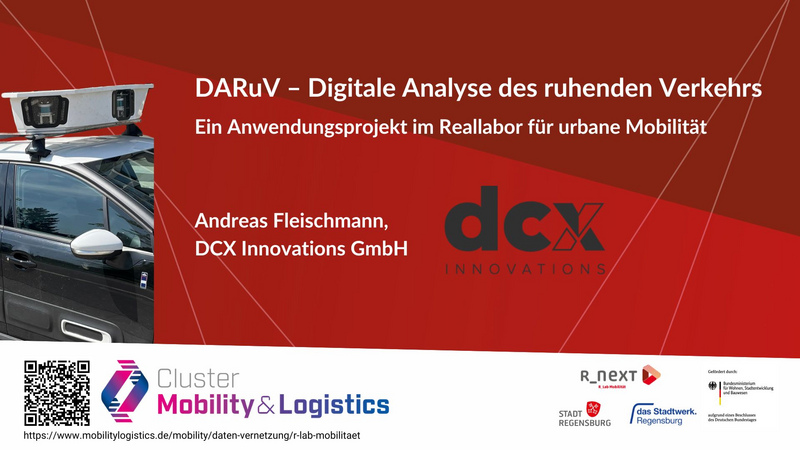As part of the R_Lab Mobility real-world laboratory at Galgenberg in Regensburg, the DARuV (Digital Analysis of Stationary Traffic) project is testing an innovative approach to recording and analyzing stationary traffic. Using data protection-compliant, mobile multi-sensors (CITYSCANNER), a comprehensive digital traffic space analysis was carried out at Galgenberg on two days in July and November 2024 without interfering with the existing infrastructure.
The CITYSCANNER® system, developed by DCX Innovations GmbH, combines optical components, LIDAR units, and high-precision GPS to collect detailed data on parking space usage, parking pressure, and parking violations during several regular survey days. This information is used to create a digital parking space register, analyze utilization curves, and identify hazardous situations caused by parking violations.
Objective data collection enables more informed mobility decisions to be made and measures to be developed to improve road safety, especially for vulnerable road users such as children and the elderly. The project also contributed to reducing CO₂ emissions by identifying parking search traffic as an avoidable portion of total traffic and enabling appropriate solutions to be found.
DARuV was part of the REGENSBURG_NEXT urban smart city project and is funded by the Federal Ministry of Housing, Urban Development, and Construction. The data obtained in the project will be integrated into the planned Mobility Data Hub, operated by Stadtwerk.Regensburg GmbH, to make it available to mobility stakeholders for further analysis and the development of new business ideas.
With DARuV, Regensburg is demonstrating how modern technology and data-driven analysis can be used to create a sustainable and safe mobility infrastructure. After initial testing as part of the R_Lab Mobility project, commissions followed from the city of Regensburg.



